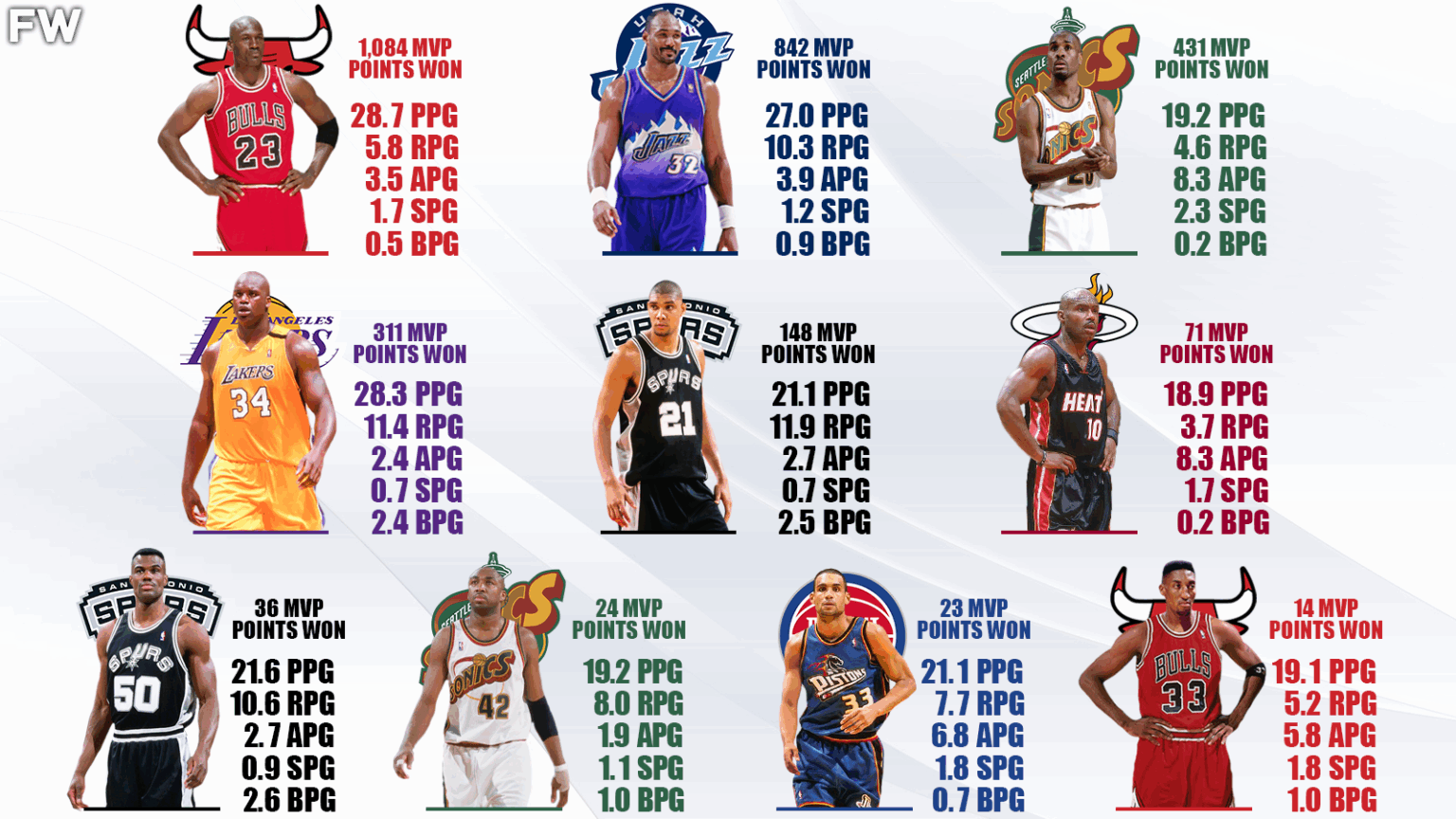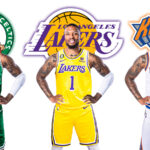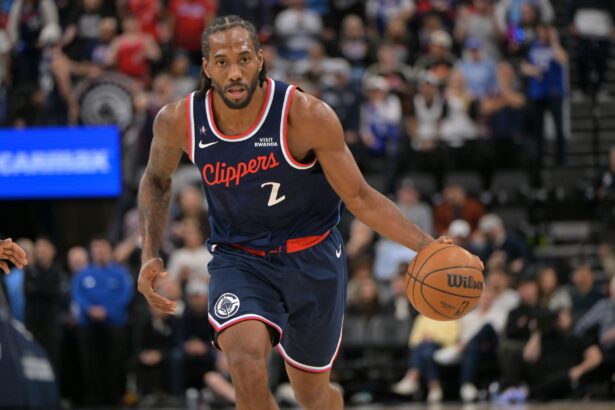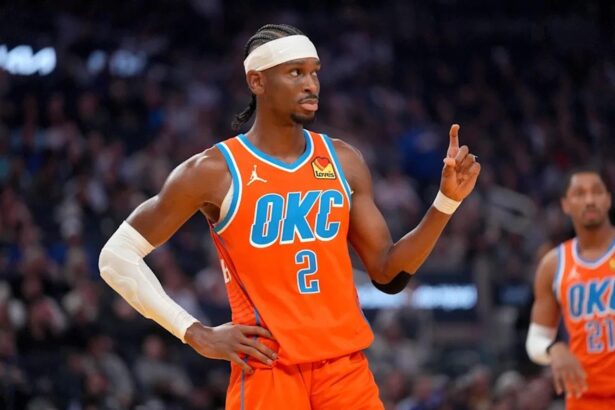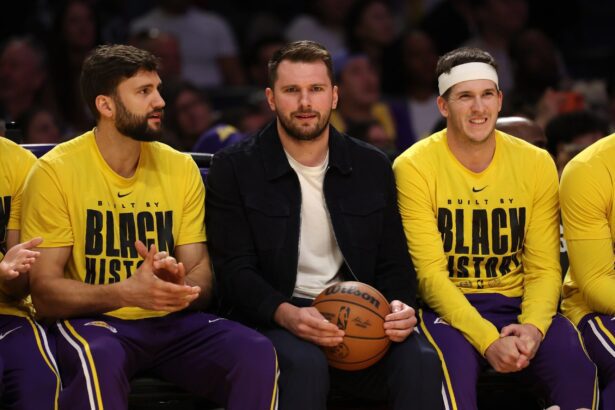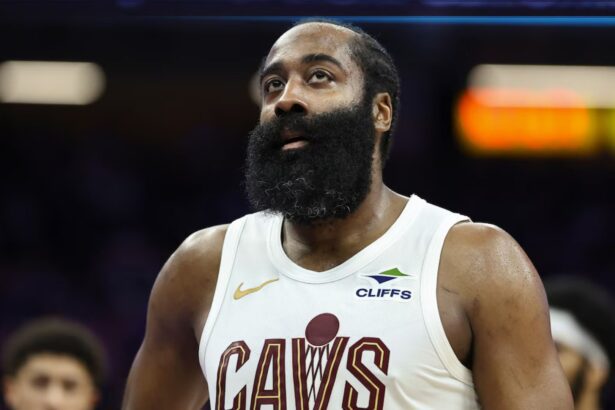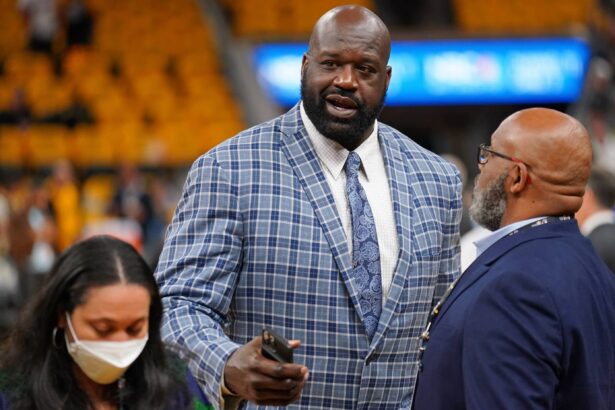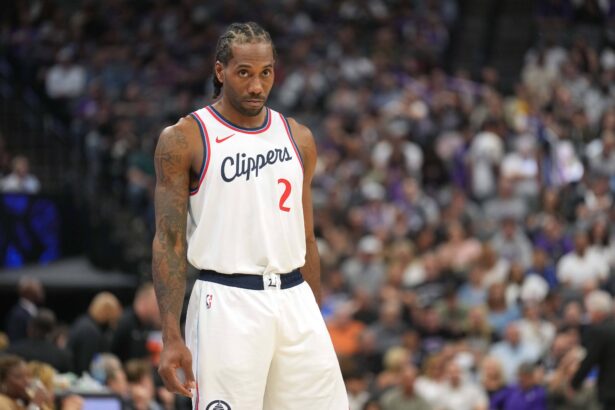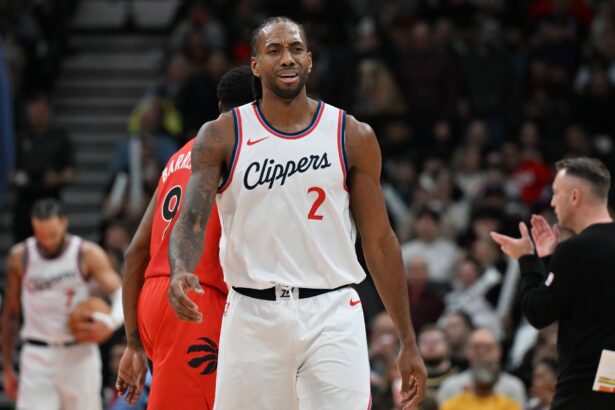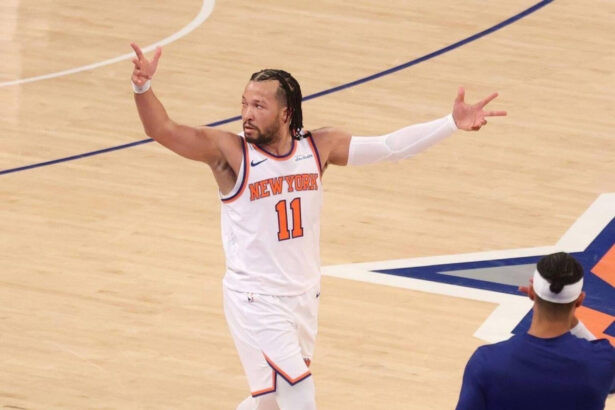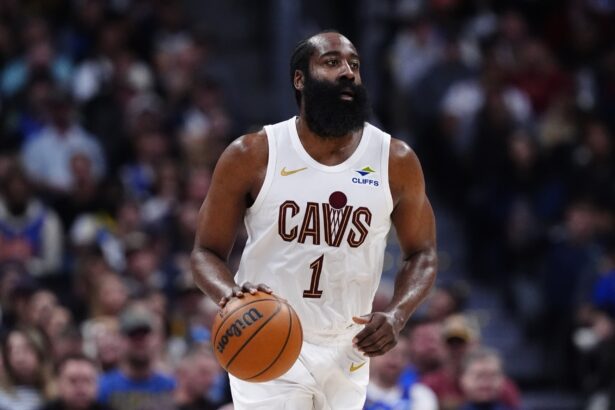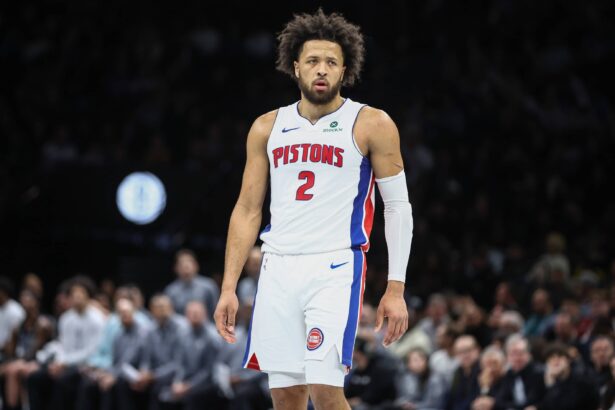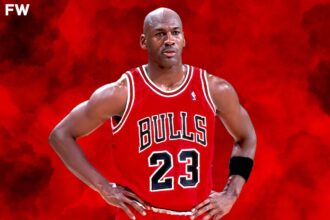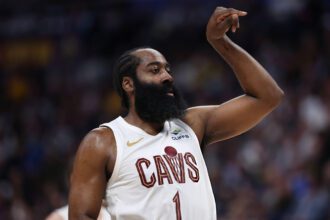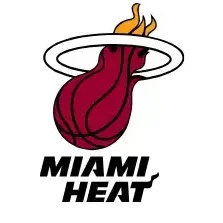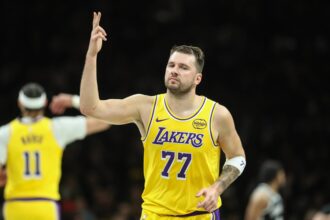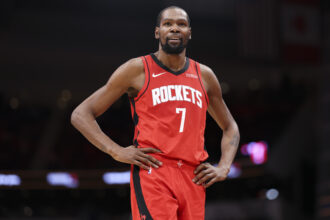Michael Jordan is, without a doubt, the greatest player of all time, capturing 6 NBA titles and forming one of the most dominant runs for a franchise with the Chicago Bulls. In many ways, Jordan changed the game and brought an influx of fans from all over the globe who wanted to see His Airness glide and fly all over the court.
- 10. Scottie Pippen – 14 MVP Points
- 9. Grant Hill – 23 MVP Points
- 8. Vin Baker – 24 MVP Points
- 7. David Robinson – 36 MVP Points
- 6. Tim Hardaway – 71 MVP Points
- 5. Tim Duncan – 148 MVP Points
- 4. Shaquille O’Neal – 311 MVP Points
- 3. Gary Payton – 431 MVP Points
- 2. Karl Malone – 842 MVP Points
- 1. Michael Jordan – 1,084 MVP Points
His dominance as a two-way shooting guard was unprecedented, and until today, we haven’t seen a player compete with him as a two-way guard. As much as people try to compare their skills to his, very few come close because he achieved the highest level of success. The fact that MJ won 6 titles stands out most, especially when he never played in a Game 7 and won 6 Finals MVP awards as well. Jordan’s final championship season came in 1998, the final year in which Jordan captured his 5th and final MVP award as well.
It is time to go back in time to look at the 1998 NBA MVP race that gifted His Airness the 5th MVP of his career. This race was iconic because 9 Hall of Famers were all battling for the iconic individual award, and Michael ended up winning it in spectacular fashion. We already saw how Jordan won the 1991 MVP race and did the same in 1992 and 1996. There will never be another Michael Jordan, and that was evident in the 1998 season when Mike beat out the likes of Karl Malone, Gary Payton, and Shaquille O’Neal to win the award.
10. Scottie Pippen – 14 MVP Points
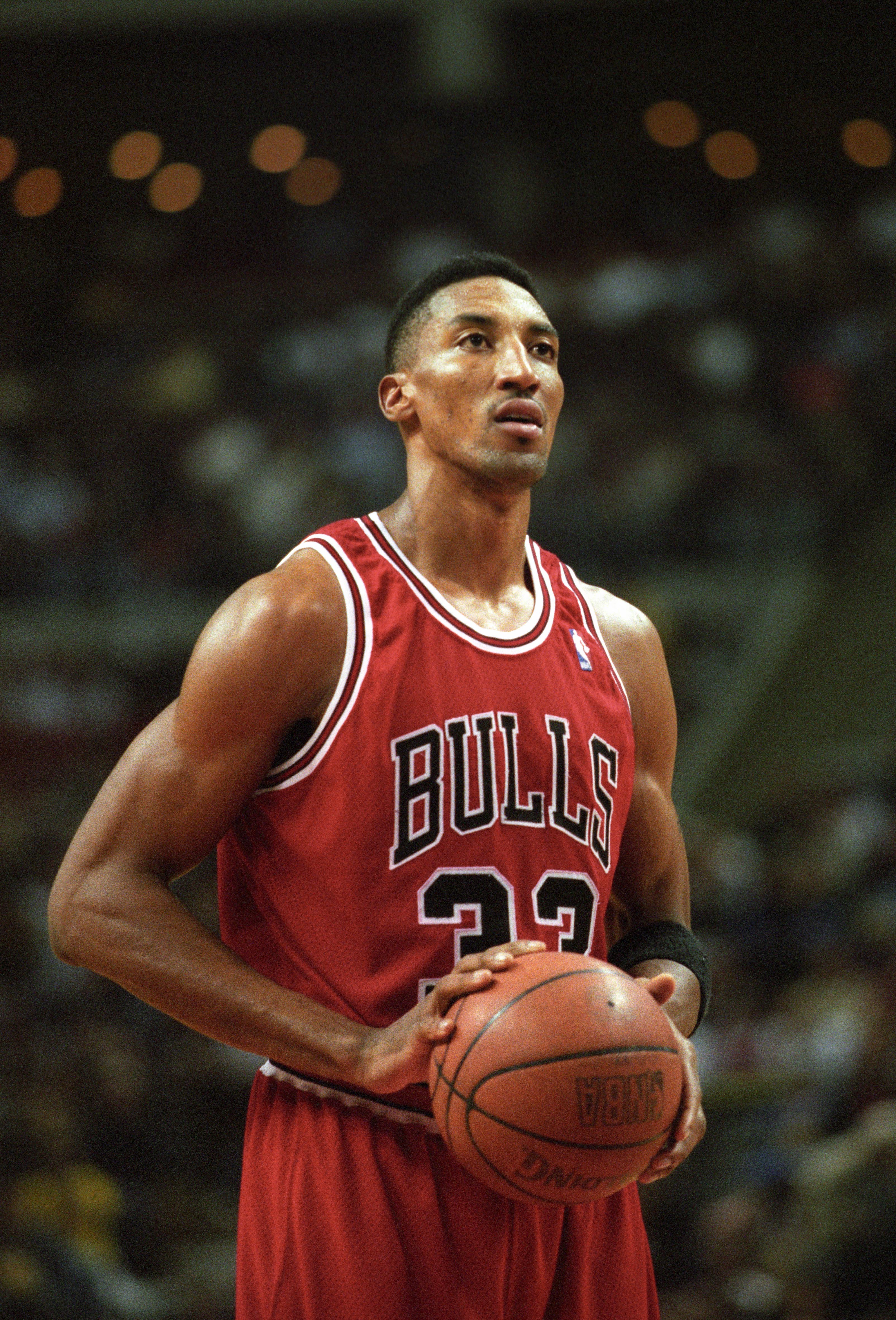
Stats: 19.1 PPG, 5.2 RPG, 5.8 APG, 1.8 SPG, 1.0 BPG
Even though Scottie Pippen put up outstanding all-around numbers and assisted Michael Jordan in leading the Bulls to the best record in the Eastern Conference during the 1998 season, he was denied a spot on the All-Star Team. Regardless, Pippen, one of the game’s top defenders, supported MJ as the Bulls captured its second 3-peat and sixth championship. Scottie was an easy candidate for an All-NBA Team selection because of his achievements, and he also had a spot in the MVP race as the sidekick to the best player in the world.
9. Grant Hill – 23 MVP Points
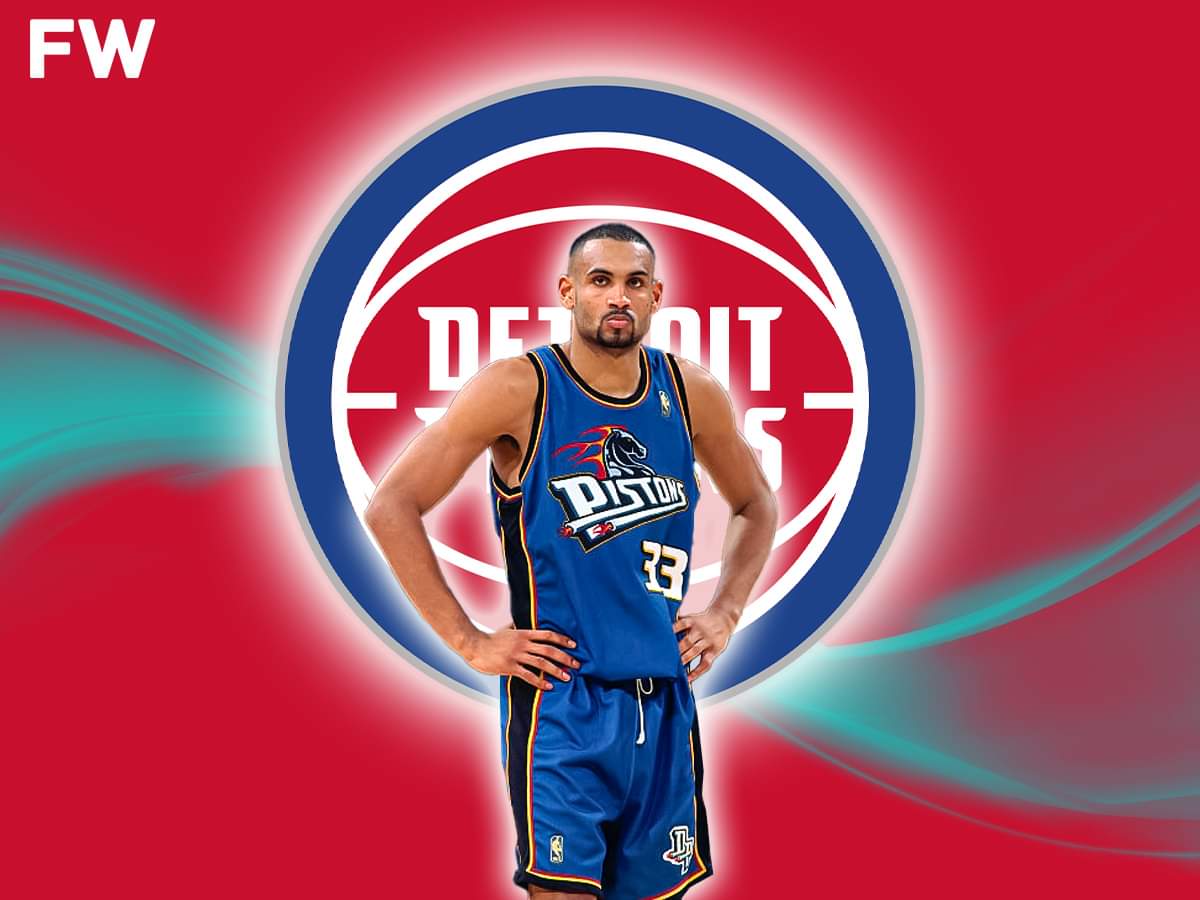
Stats: 21.1 PPG, 7.7 RPG, 6.8 APG, 1.8 SPG, 0.7 BPG
Grant Hill, one of the best wings in NBA history on pure talent and ability, was selected to his fourth straight All-Star team while playing for the Detroit Pistons. Hill was his typical dominant self by putting up outstanding all-around numbers. The Detroit Pistons were not yet a successful franchise, but Hill was displaying signs of becoming the best player in the world as Michael Jordan was 34 years old and showing slight signs of age. Of course, Hill’s career was severely damaged by injuries and we never got to see Hill continue his upward trend of sublime play.
8. Vin Baker – 24 MVP Points
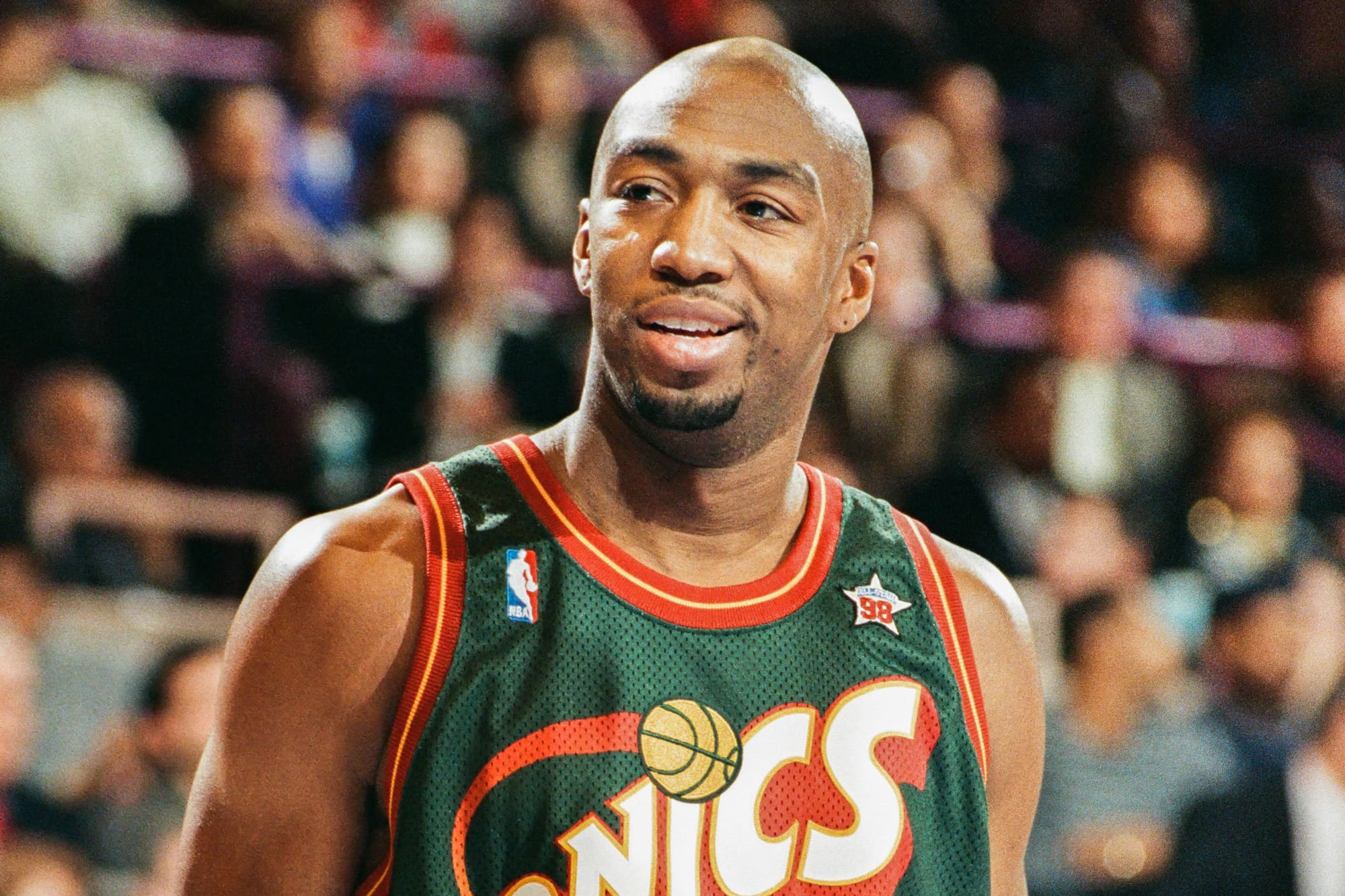
Stats: 19.2 PPG, 8.0 RPG, 1.9 APG, 1.1 SPG, 1.0 BPG
A 6’11” big man who was the All-Star alongside Gary Payton for the Seattle SuperSonics, Vin Baker would make his fourth straight All-Star Team in the 1998 season. Baker was essential to a SuperSonics squad that finished with a fantastic 61-21 record in the West thanks to his partnership with superstar Gary Payton, arguably the best point guard in the NBA. With that record, Seattle would have finished second in the Western Conference, but Baker was unable to help Seattle advance past the Los Angeles Lakers in the playoffs. Regardless, Baker’s presence as a two-way big earned him an 8th spot in the MVP race.
7. David Robinson – 36 MVP Points
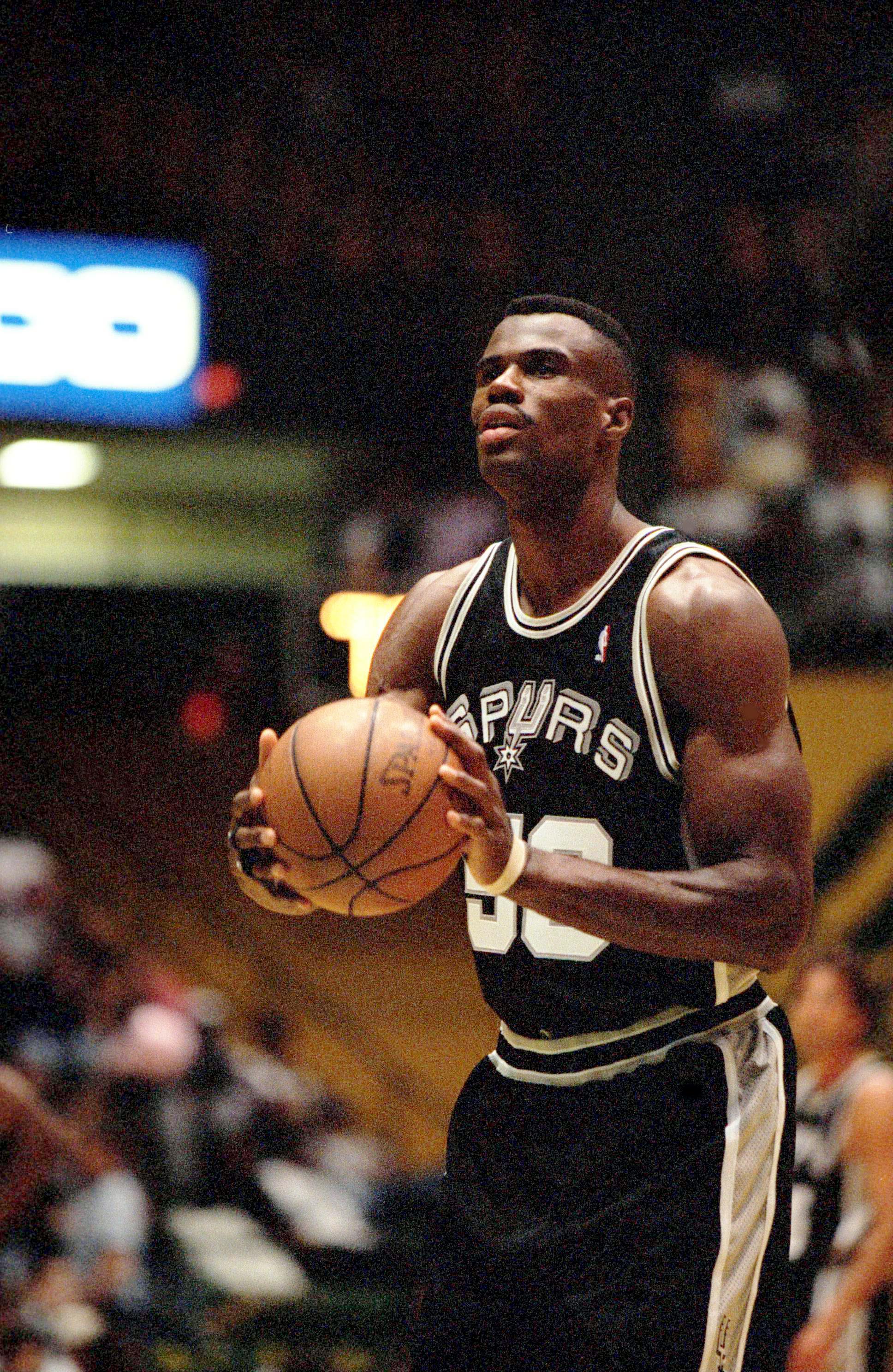
Stats: 21.6 PPG, 10.6 RPG, 2.7 APG, 0.9 SPG, 2.6 BPG
At the age of 32, “The Admiral” David Robinson of the San Antonio Spurs made his eighth All-Star team. The big guy continued to be one of the league’s most dominant players, putting up huge double-doubles consistently and dominating on defense (2.6 BPG ranked 5th in the league). As San Antonio’s leader, Robinson helped the team to a 56-26 record and into the second round of the playoffs. Robinson and company were defeated by Karl Malone and the Utah Jazz, but this does not diminish the outstanding regular season of the Spurs’ franchise player. It wouldn’t be long before Tim Duncan would become the star of the show in San Antonio if he didn’t already in 1998.
6. Tim Hardaway – 71 MVP Points
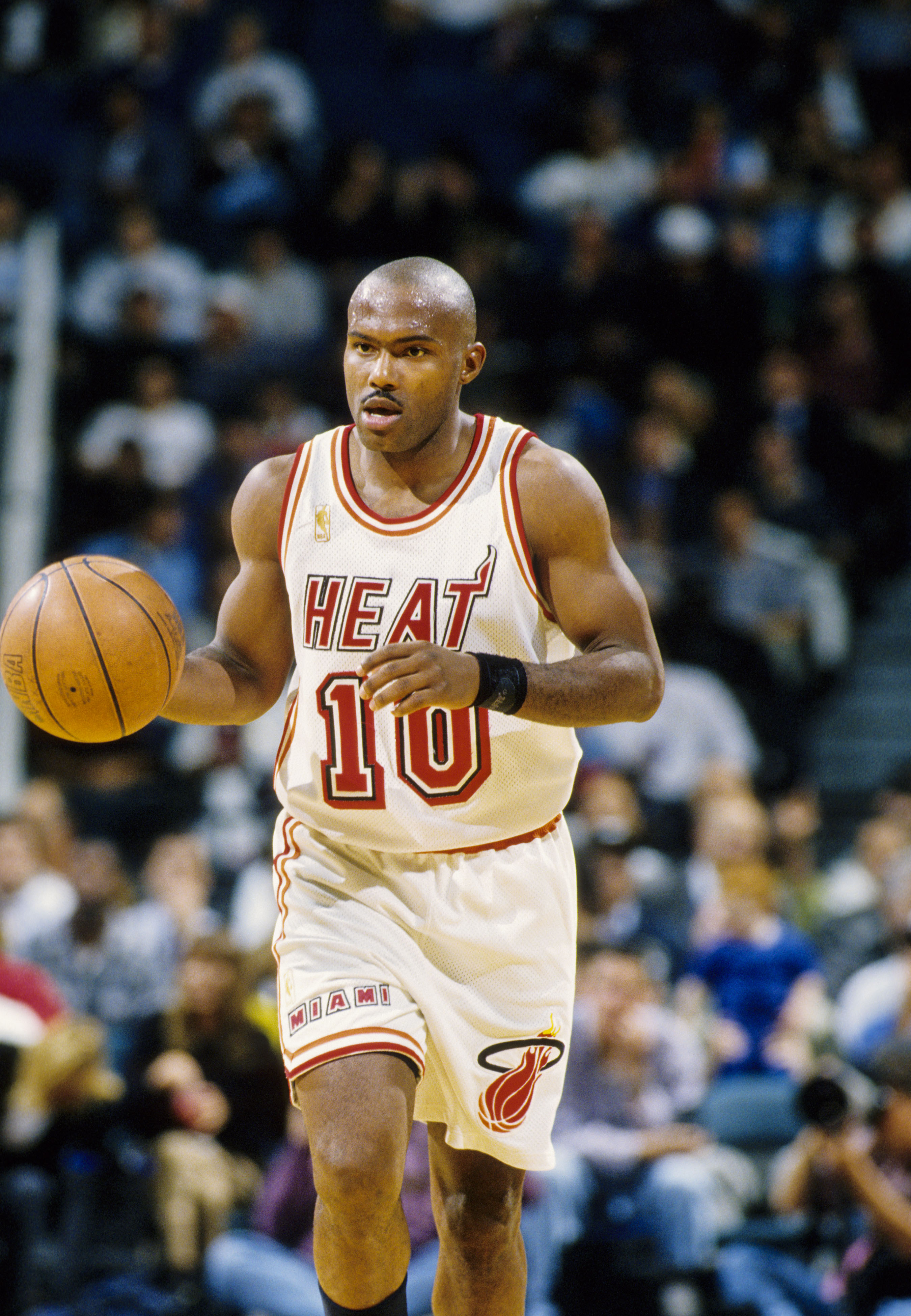
Stats: 18.9 PPG, 3.7 RPG, 8.3 APG, 1.7 SPG, 0.2 BPG
Tim Hardaway, one of the best ball-handlers of all time, was a member of the Miami Heat, who finished third in the Eastern Conference, and he was selected for his second consecutive All-Star Team. He was chosen as an All-Star for the fifth time overall in the 1998 season, and he did so in a spectacular fashion. Miami followed Hardaway’s lead since he was extremely essential to his team’s offensive success, posting 18.9 PPG and 8.3 APG. Hardaway’s presence as a floor general made him possibly a top-two point guard in the NBA at that time.
5. Tim Duncan – 148 MVP Points
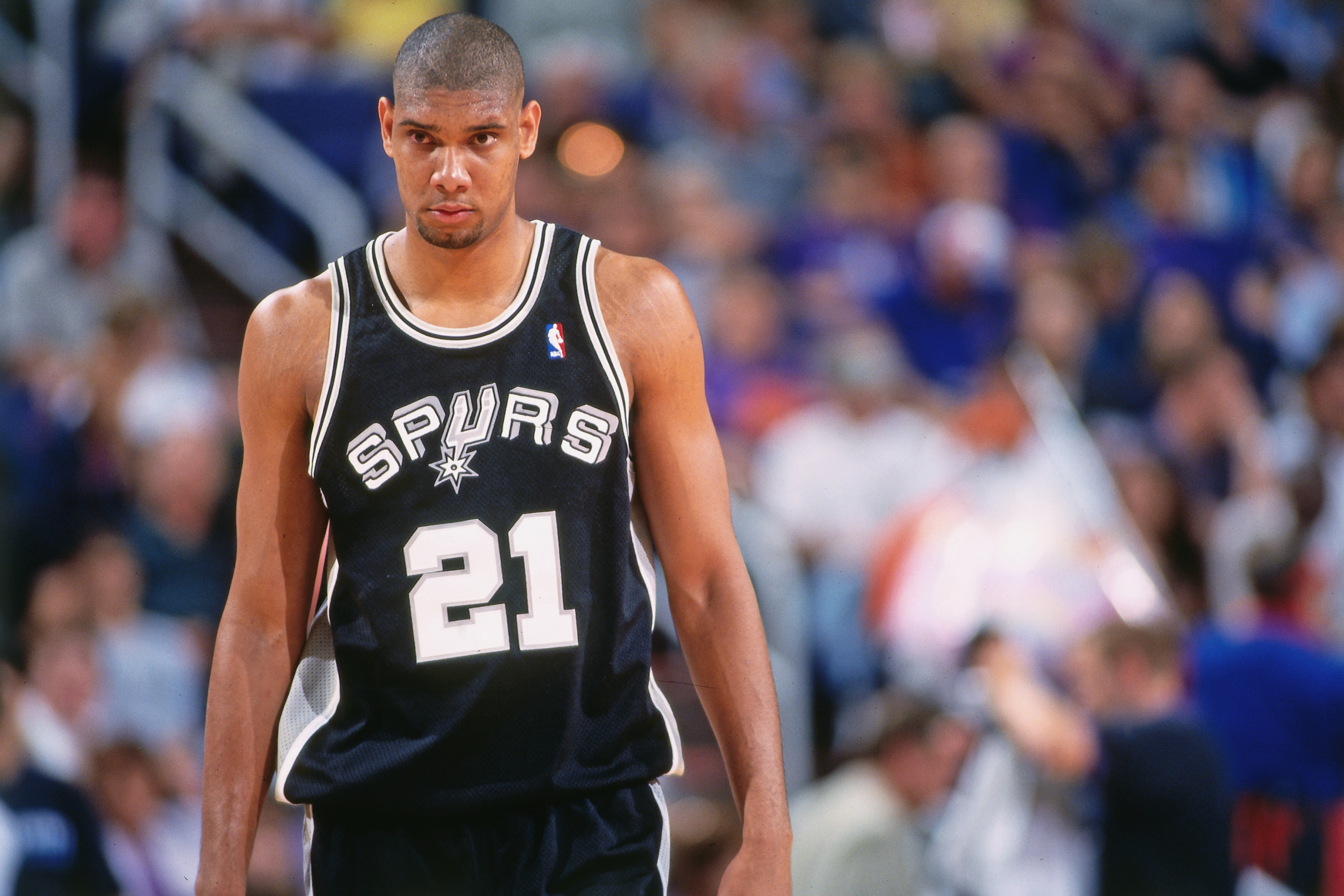
Stats: 21.1 PPG, 11.9 RPG, 2.7 APG, 0.7 SPG, 2.5 BPG
Rookie of the Year winner Tim Duncan was outstanding as soon as he entered the league, making the All-NBA First Team and supplanting seasoned All-Star David Robinson as the San Antonio Spurs’ most talented player. Duncan was a superb defensive power forward with an extremely high basketball IQ. He played in all 82 games and was so good that he made the All-Star Team at only 21 years old. Even if the team wasn’t prepared to upset Malone and the Jazz in the second round of the playoffs, San Antonio’s future would still be promising. Amazingly, Duncan had a 5th-place finish in the 1998 season by posting 21.1 PPG and 11.9 RPG (3rd in the league).
4. Shaquille O’Neal – 311 MVP Points

Stats: 28.3 PPG, 11.4 RPG, 2.4 APG, 0.7 SPG, 2.4 BPG
Shaquille O’Neal, the most imposing physical specimen in the NBA since Wilt Chamberlain, was starting his Los Angeles Lakers career as he played in his second season with the franchise. The Lakers finished with a 61-21 record because of the center’s outstanding overall statistics, despite losing to the Utah Jazz in the Western Conference Finals. O’Neal would soon have enough support, along with 19-year-old Kobe Bryant, who made his first All-Star Team, to begin ruling the NBA. But there was no denying that Shaq was by far the finest center in the game in 1998, and dominance would soon ensue.
3. Gary Payton – 431 MVP Points
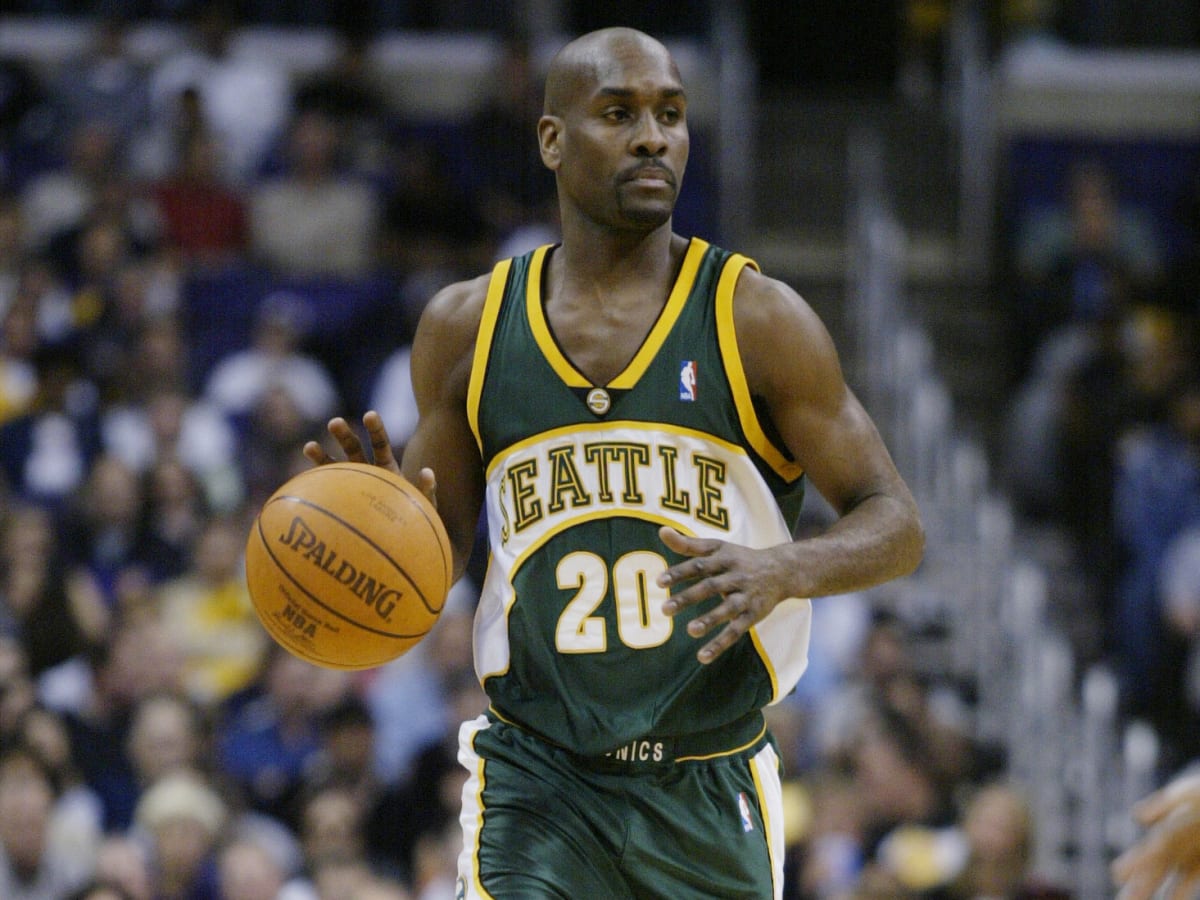
Stats: 19.2 PPG, 4.6 RPG, 8.3 APG, 2.3 SPG, 0.2 BPG
In Seattle, The Glove, Gary Payton and big man Vin Baker made an amazing duo on the court together. Baker was a bona fide All-Star, but Gary Payton was a stellar guard who played all 82 games at a star level on both ends of the floor and was the driving force of the team. Payton was a competitive player with a high basketball IQ that had an impact on Seattle, finishing with the second-best record in the league. Making the All-NBA First Team, averaging 8.3 APG (7th in the league) and 2.3 SPG (4th), and dominating his position, Gary came close to winning the MVP award.
2. Karl Malone – 842 MVP Points
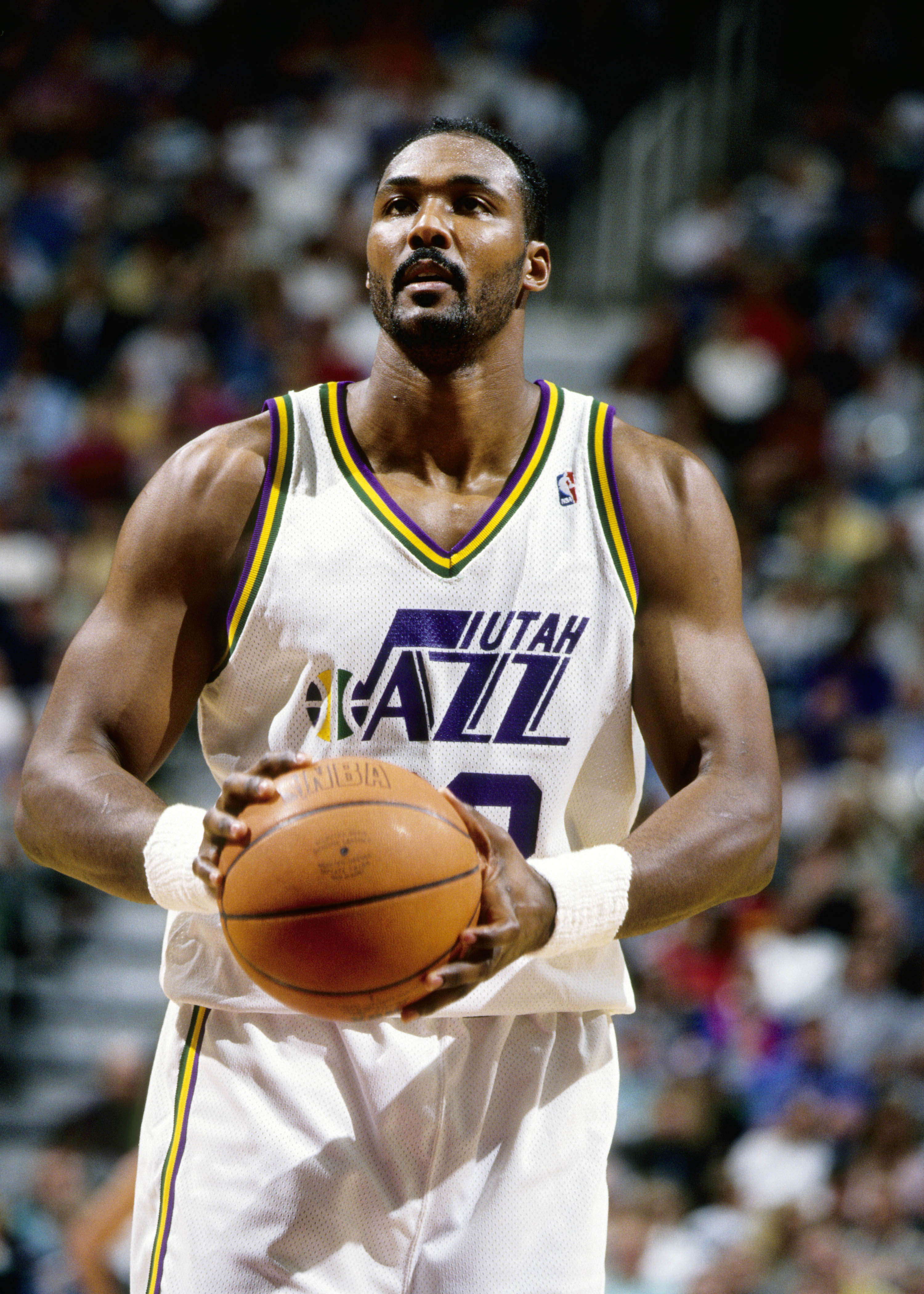
Stats: 27.0 PPG, 10.3 RPG, 3.9 APG, 1.2 SPG, 0.9 BPG
The Mailman, the best power forward in the league, had another outstanding season for the Utah Jazz, making his 11th All-Star team. Malone was aware that Tim Duncan had arrived in San Antonio, but he still reigned supreme despite the challenge of an up-and-coming youngster. Karl Malone led Utah to the best record in the West and the NBA Finals despite losing to the Bulls, averaging 27.0 points per game and 10.3 rebounds per game on 53.0% field goal shooting in the season. Malone’s scoring ranked 3rd in the NBA behind Michael and Shaq, and although The Mailman was a dominant force, only one man could possibly earn the MVP award.
1. Michael Jordan – 1,084 MVP Points
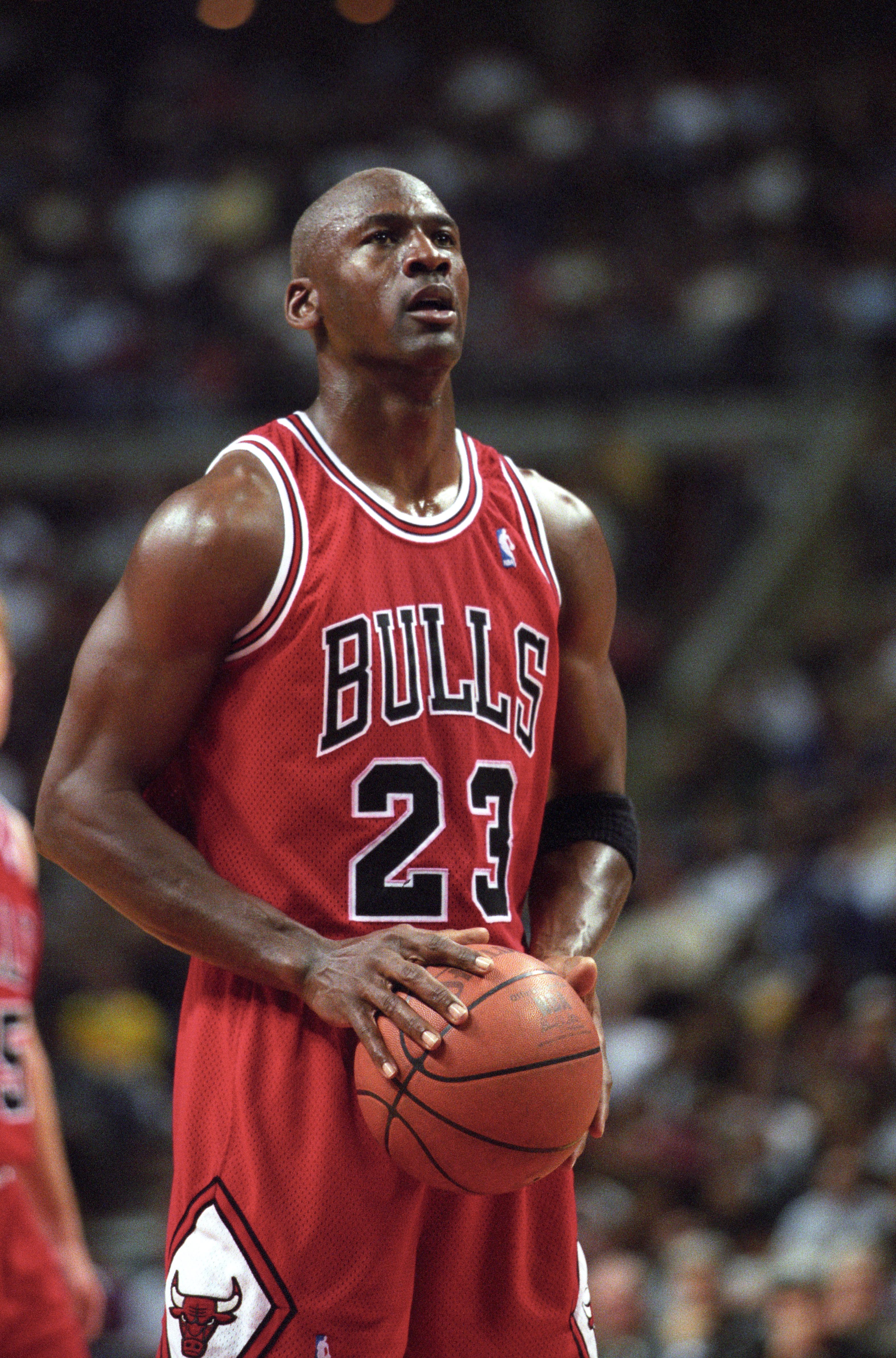
Stats: 28.7 PPG, 5.8 RPG, 3.5 APG, 1.7 SPG, 0.5 BPG
Even if there is still a debate as to whether Michael Jordan should have received more than five MVP trophies as he finished second 4 times, there is still a sizable list of accomplishments. Jordan, the best guard to ever live, was a force on both sides of the court and deserved every MVP award. No player could get buckets as easily as Michael Jordan, thus, being the best scorer in the NBA and earning 10 scoring titles undoubtedly helped him receive more MVP votes each year.
As he matured, Michael became more dominant because he controlled the pace of games better than anyone else, and that showed in 1998 when he was 34 years old. Jordan dropped 28.7 PPG to win his 10th scoring title and did so while nailing 46.5% from the field and 78.4% from the line. Jordan’s dominance allowed him to lead the Chicago Bulls to a 62-20 record and, eventually, win the NBA championship.
We sincerely appreciate and respect you as a reader of our site. It would help us a lot if you follow us on Google News because of the latest update.
Thanks for following us. We really appreciate your support.

